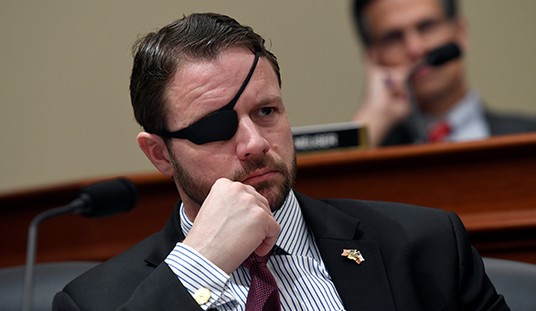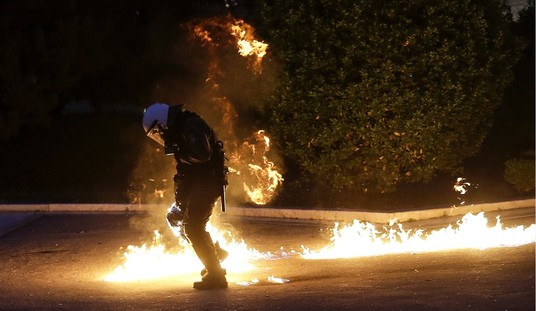 The New Republic article on Obama’s time as a community organizer on the South Side of Chicago begins with him telling his mentor why he was quitting. The pay was too low and it didn’t work. “Obama told Kellman that he feared ending up destitute and unhappy like his dad. ‘He wanted to marry and have children, and to have a stable income,’ Kellman recalls.” Obama, to hear tell, stopped being a community organizer because he didn’t want to be a loser.
The New Republic article on Obama’s time as a community organizer on the South Side of Chicago begins with him telling his mentor why he was quitting. The pay was too low and it didn’t work. “Obama told Kellman that he feared ending up destitute and unhappy like his dad. ‘He wanted to marry and have children, and to have a stable income,’ Kellman recalls.” Obama, to hear tell, stopped being a community organizer because he didn’t want to be a loser.
But Obama was also worried about something else. He told Kellman that he feared community organizing would never allow him “to make major changes in poverty or discrimination.” To do that, he said, “you either had to be an elected official or be influential with elected officials.” … And so, Obama told Kellman, he had decided to leave community organizing and go to law school. Kellman, who was already thinking of leaving organizing himself, found no reason to argue with him. “Organizing,” Kellman tells me, as we sit in a Chicago restaurant down the street from the Catholic church where he now works as a lay minister, “is always a lost cause.” Obama, circa late 1987, might or might not have put it quite that strongly. But he had clearly developed serious doubts about the career he was pursuing. …
Yet, two decades later, to hear Obama the presidential candidate tell it, those years in Chicago as a community organizer shaped the person–and the politician–he has become. Campaigning in Iowa last year, he declared that community organizing was “the best education I ever had, better than anything I got at Harvard Law School.”
But John Judis, who wrote the New Republic piece, claims that another and unstated reason impelled Obama to leave organizing for a career as a lawyer and a politician. Unlike Alinsky, Obama believed that politicians, not community organizers made history. If community organizing had an ideology at all, it was the product of Saul Alinsky’s Rules for Radicals, which as I have written elsewhere, was an attempt to separate the revolutionary impulse from the apparatus and return it to the direct control of the people. Judis summed up the central tenet of Alinsky’s ideology and described how Obama had lost the faith.
Alinsky felt that organizers should draw a clear line between their work and the political world. An organization should forge “no permanent political ties,” declared a guide put out by the Industrial Areas Foundation, which Alinsky created. When I asked former community organizer John Kretzmann–who teaches at Northwestern and writes about organizing–whether organizers saw all politicians as “whores,” he replied, “Even if you found one that wasn’t, it makes no sense to get close to them.” …
Yet there is considerable evidence that … Obama was having doubts about community organizing. By the early fall of 1987–a little more than two years after he had come to Chicago — Obama had decided to apply to Harvard Law School. At some point thereafter, he began to explain his decision to friends and colleagues. The most revealing of these discussions are not reported in Dreams from My Father.
It was not just the walk he took with Kellman through Harvard’s campus. Obama also talked to Kruglik about his reasons for leaving Chicago. In their conversations, he described politics–and winning political office–as the most important step toward achieving change. And, instead of seeing [Mayor] Harold Washington as buffeted by forces beyond his control, he now aspired to be Washington.
One could make the case that Obama was simply “growing up”; that youth is a place where we can’t remain, even if we wanted to. But Obama’s decision to change tracks went beyond the idea of moving on to a higher skilled role in the same struggle. Judis claims Obama wanted to leave the philosophy of CO behind altogether. Working for small, tangible reforms was too limiting for his grand vision. Judis writes, “by late 1987, he seems to have grown disillusioned with the underlying principles of community organizing.” At a meeting of the “Save our Neighborhoods/Save our City (SON/SOC)”, an Alinksy-style community organization, Obama in “a white shirt, tie, and incipient Afro” showed up to make the case against the Alinsky method itself. He questioned the principle or organizing people around immediate self-interest. The people were going to be nothing unless they were enlisted in a greater cause. In short, community organizing didn’t change history; power and leaders with charisma changed history.
Obama put it this way: “The process whereby people in communities … start to get bigger horizons … it seems to me that that strain gets lost.” … But Obama didn’t stop there. He had a litany of criticisms of Alinsky-style organizing that he wanted to put forward. He objected to community organizers’ dismissal of charismatic leadership and of movements. …
Obama also criticized community organizers’ “suspicion of politics.” “The problem we face now in terms of organizing is that politics is a major arena of power,” Obama said. “That’s where your major dialogue, discussion, is taking place. To marginalize yourself from that process is a damaging thing, and one that needs to be rethought.”
Before he was done, Obama had rejected the guiding principles of community organizing: the elevation of self-interest over moral vision; the disdain for charismatic leaders and their movements; and the suspicion of politics itself. But he did so in a way that seemed to elude the other participants. Two decades later, Green couldn’t recall any disagreement over his more positive take on SON/SOC. Joravsky also didn’t remember Obama’s criticisms of organizing. Instead, he recalled thinking how “cool” and “well-spoken” Obama was.
An August, 2008 Belmont Club post, Boyd Versus Alinsky, anticipated Judis’ arguments. It didn’t require much effort to figure out that Obama self-orientation was fundamentally at odds with the ethos of community organizing. I wrote:
despite his claims to the contrary, Barack Obama is not a “community organizer”. Alinsky’s Community Organizing model was above all a response within the Left to the Cult of Personality. Rules for Radicals is founded on the principle of “letting the people decide”, and while it does not dogmatically discount the influence of leadership it fundamentally rejects the idea that a “vanguard” intellectual elite can lead the “masses”. …
No real organizer mints a Presidential seal, describes himself as the symbol of a generation, believes he is the One and makes himself the object of ridicule. No real organizer insults the masses as gun-toting, Bible-clinging ignoramuses at a fundraiser attended by billionaires in San Francisco. Not a single experienced mass agitator would ever dream of extolling the values of arugula and upbraid the workers for their ignorance of tire pressures. What kind of Alinsky-style organizer reminds people of his sacramental nature, repetitively, monotonically and deadeningly? …
A real organizer works in small settings, amplifying, exhorting, putting others on the stage. He doesn’t work in front of large crowds and from the front pages of newspapers. And if it is objected that nobody can become President of the United States that way, the answer is that community organizers don’t want to become Presidents. They want to be organizers.
Obama, however, wanted to be President. So his departure from community organizing is fair enough. What is slightly underhand is his practice of donning the romantic mantle of the organizer, the champion of “lost causes” and using the image of the quixotic loser he rejected in private as his badge of honor. Maybe the contrast can explained by the fact that “community organizer” sounds better than “lawyer” or “politician”. But the differences go beyond the use of misleading imagery. They are philosophical. If the ‘people’ are too weak to seize power in the first place, then maybe they are too dull to understand what is good for them. And maybe they need Obama to tell them that. Judis closes his piece with this paragraph rhetorically wondering whether Obama would ever return to the grassroots:
When Obama came to South Chicago, he believed in community organizing; within two-and-a-half years–by the time he and Jerry Kellman went for their late October walk around Harvard’s campus–he was clearly growing disillusioned. Now, having fashioned a political identity in near-total opposition to the core principles of his one-time profession, Obama’s bid for the presidency may come down to this: Is he willing to rediscover–and put into practice–one of the main principles he followed as a twentysomething activist all those years ago?
Personally I doubt it. Obama won’t rediscover community organizing until some humbling experience brings back to him the reasons why Alinsky’s suspicion of leadership-oriented movements arose in the first place; until he re-learns that the key to becoming extraordinary is to accept in some fundamental way that you are ordinary. John McCain’s convention speech had its own “walk through Harvard Yard” moment in the other direction: the instant when he stopped being an attack pilot and admiral’s son and became something at once lesser and greater: a naval officer.
They broke me. When they brought me back to my cell, I was hurt and ashamed, and I didn’t know how I could face my fellow prisoners. The good man in the cell next door, my friend, Bob Craner, saved me. Through taps on a wall he told me I had fought as hard as I could. No man can always stand alone. …
I couldn’t do anything. I couldn’t even feed myself. They did it for me. I was beginning to learn the limits of my selfish independence … and I missed everything about America. But I turned it down.
You are never too good for those you truly love.









Join the conversation as a VIP Member